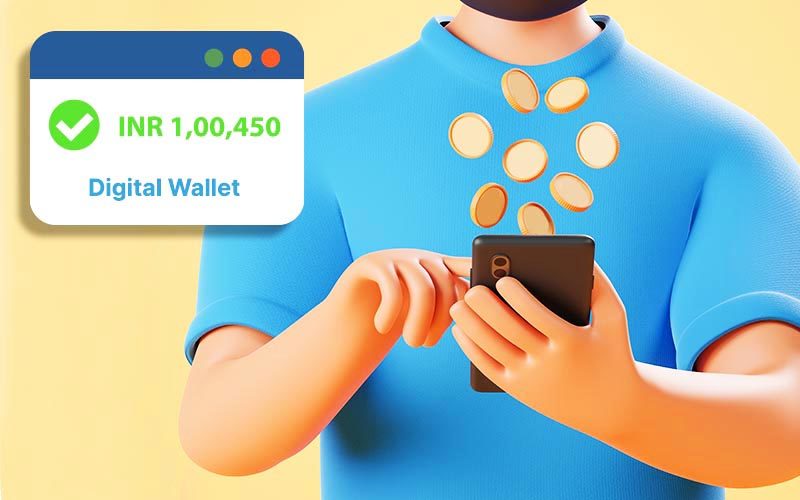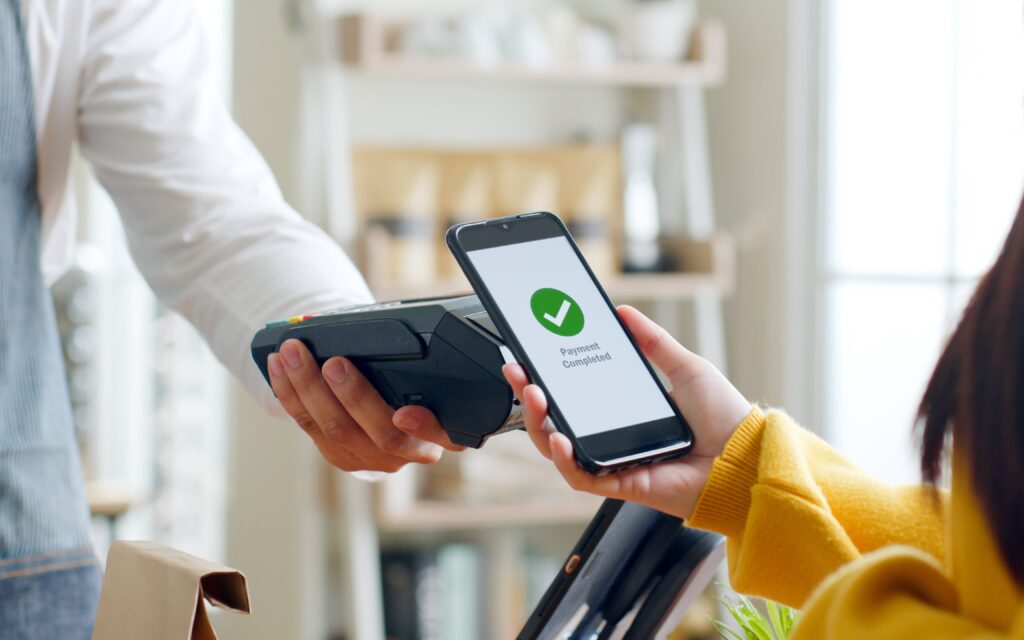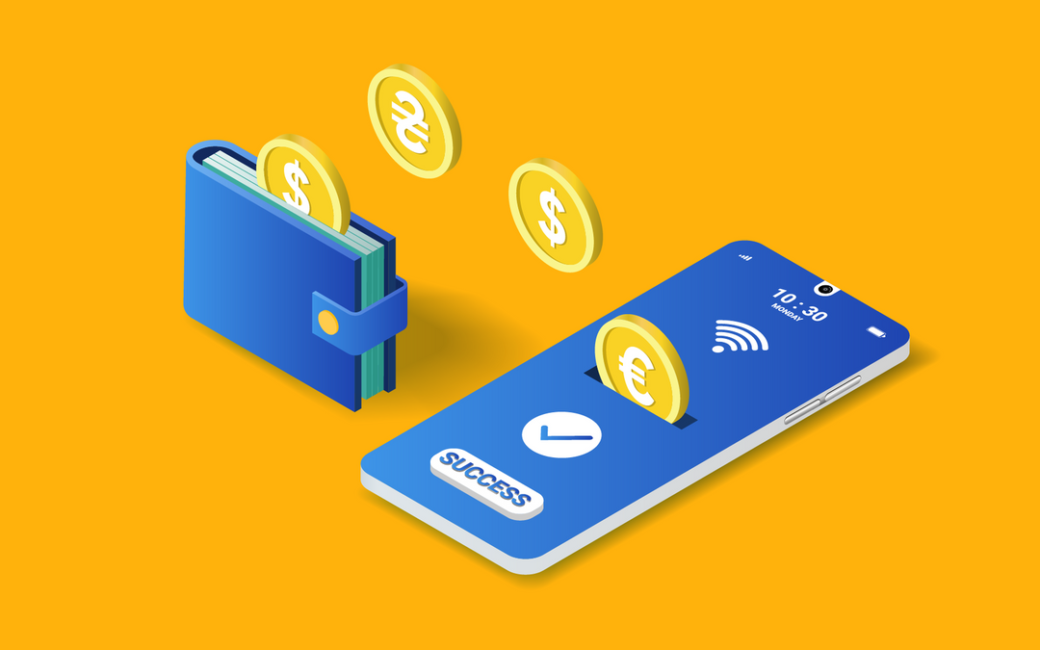In recent years, the financial landscape has experienced a significant shift with the rise of digital wallets. These digital tools, once considered a novelty, have now become integral to the way individuals manage their finances. From facilitating seamless transactions to offering enhanced security features, digital wallets have revolutionized the traditional concept of monetary transactions. This article explores the various aspects of digital wallets and their impact on the way we manage money.
When it comes to finding a reliable company for roof cleaning in St. Augustine, it’s crucial to consider factors like experience, customer reviews, and pricing.
The Evolution of Digital Wallets

Digital wallets, also known as e-wallets or mobile wallets, have evolved rapidly since their inception. Initially developed as a convenient way to store payment information for online purchases, digital wallets now offer a wide range of functionalities beyond basic transactions. With advancements in technology and the widespread adoption of smartphones, digital wallets have become versatile platforms that allow users to manage various aspects of their financial lives.
One of the key factors driving the evolution of digital wallets is the increasing demand for convenience and efficiency in financial transactions. Traditional payment methods, such as cash and physical credit cards, are being gradually replaced by digital alternatives that offer greater flexibility and accessibility. As consumers become more accustomed to conducting transactions through their mobile devices, the adoption of digital wallets continues to soar. In line with this trend, people are also seeking convenience in other financial aspects like mortgages, and that’s where finding the top mortgage brokers in Raleigh NC becomes crucial.
The Benefits of Digital Wallets
The popularity of digital wallets can be attributed to the numerous benefits they offer to users, like convenient ways to pay. One of the primary advantages is the convenience of carrying all payment information in one secure location. Instead of carrying multiple credit cards or cash, users can simply store their payment details within their digital wallet and access them whenever needed. This not only reduces the clutter in physical wallets but also minimizes the risk of losing sensitive financial information. Businesses offering copywriting services might find digital wallets handy for quick and secure transactions.
Furthermore, digital wallets streamline the payment process, allowing users to complete transactions quickly and easily, whether they’re buying groceries, shopping for clothes, or hiring a company for landscaping in Florida. Whether making in-store purchases, online payments, or peer-to-peer transfers, digital wallets offer a seamless and efficient way to transfer funds. With features such as one-click payments and automatic transaction tracking, users can manage their finances with unprecedented speed and convenience.
The Impact on Traditional Banking
The rise of digital wallets has also had a significant impact on the traditional banking sector. As more consumers embrace digital payment solutions, banks are forced to adapt to changing customer preferences and expectations. Many banks have begun integrating digital wallet features into their existing mobile banking apps, offering customers a comprehensive financial management platform.
Additionally, digital wallets have opened up new opportunities for financial inclusion, particularly in underserved communities. By providing access to digital payment services, even to those without traditional bank accounts, digital wallets empower individuals to participate more fully in the modern economy. This democratization of financial services, alongside hiring a reputable company for crawl space encapsulation in Kansas City, has the potential to bridge the gap between the banked and unbanked populations, fostering greater economic equality and opportunity.
Enhanced Security Measures
Digital wallets have introduced a new era of security in financial transactions. With the increasing prevalence of cyber threats and identity theft, ensuring the security of sensitive financial information has become a top priority for both consumers and businesses alike. Digital wallets employ advanced encryption techniques and multi-factor authentication methods to safeguard user data and prevent unauthorized access. Additionally, many digital wallet providers offer proactive fraud detection and real-time transaction monitoring, providing users with peace of mind knowing that their financial information is protected against potential threats.
Furthermore, some digital wallet platforms go beyond traditional security measures by incorporating biometric authentication, such as fingerprint or facial recognition, to verify user identity. This adds an extra layer of protection against unauthorized access, as biometric data is unique to each individual and difficult to replicate. Moreover, digital wallets often allow users to set up alerts and notifications for suspicious activity, enabling them to take immediate action in case of any unauthorized transactions or suspicious behavior.
In case you want to secure your home and need a company for root barrier installation in Dallas, it’s important to consider your options carefully and choose a reputable provider with a track record of success.
When it comes to securing your digital transactions, think of it like protecting your personal space in a plus size boudoir studio in Vancouver. Just as you’d use enhanced security measures to ensure privacy in an intimate setting, digital wallets employ tokenization technology to safeguard your sensitive payment information. Instead of sending your credit card details, they create random tokens that act as a secure authorization for your payments. These tokens are as meaningless to cybercriminals as choosing the right lingerie is to a photographer capturing beautiful moments in a boudoir studio. This not only reduces the risk of data breaches and identity theft but, when paired with end-to-end encryption protocols, ensures an overall secure and reliable payment experience for users.
Cross-Border Payments

Digital wallets are breaking down the barriers to cross-border payments, making it easier and more affordable for individuals and businesses to transfer funds internationally. Traditional methods of sending money across borders, such as wire transfers and international bank drafts, are often associated with high fees and lengthy processing times. Digital wallets offer a faster and more cost-effective alternative, allowing users to send and receive funds in different currencies with minimal hassle. This has significant implications for global commerce, enabling businesses to expand their reach and enter new markets with greater ease.
Furthermore, digital wallets facilitate cross-border payments by leveraging innovative technologies such as blockchain and distributed ledger technology (DLT). These technologies enable near-instantaneous transactions and provide transparency and traceability throughout the payment process. By eliminating intermediaries and reducing reliance on traditional banking infrastructure, digital wallets offer a more efficient and streamlined approach to cross-border payments, benefiting both senders and recipients.
Moreover, digital wallets enable users to bypass traditional currency exchange mechanisms by supporting multi-currency functionality. Instead of converting funds through banks or currency exchange services, users can hold and transact in multiple currencies directly within their digital wallet. This flexibility allows users to take advantage of favorable exchange rates and avoid costly conversion fees, ultimately saving time and money on cross-border transactions. For those interested in maintaining a healthy lifestyle, consider incorporating a vegan immune system supplement to support overall well-being alongside your financial management.
Emergence of Contactless Payments
The COVID-19 pandemic has accelerated the adoption of contactless payment technologies, further propelling the popularity of digital wallets. With health and safety concerns prompting consumers to minimize physical contact with payment terminals, contactless payments have become the preferred choice for many individuals and businesses. Digital wallets enable users to make secure, touch-free transactions simply by tapping their smartphone or wearable device at the point of sale. This convenience, coupled with the added layer of security provided by digital wallets, has led to widespread acceptance of contactless payments as the new norm in the payment industry.
If you want to pay online to buy 1/10 scale RC bodies, digital wallets offer a secure and convenient way to complete transactions without worrying about physical contact or handling cash or cards.
Furthermore, contactless payments offer benefits beyond just hygiene and safety. They also provide a faster and more efficient payment experience compared to traditional card-based transactions. With contactless payments, users can complete transactions in a matter of seconds, eliminating the need to insert or swipe cards and enter PINs. This not only reduces transaction times but also enhances the overall efficiency of the checkout process for both consumers and merchants.
Moreover, contactless payments are well-suited for a wide range of use cases, including public transportation, vending machines, and parking meters. By enabling seamless payments in diverse environments, digital wallets empower users to make purchases conveniently and securely wherever they go. This versatility has contributed to the widespread adoption of contactless payments across various industries and sectors, driving the evolution of the payment ecosystem as a whole.
Moreover, if you are buying unstructured hats wholesale, contactless payments are well-suited for a wide range of use cases, including public transportation, vending machines, and parking meters.
Personal Financial Management Tools
Digital wallets are evolving into comprehensive personal financial management tools, offering users a holistic view of their finances and helping them make informed decisions about their money. Many digital wallet platforms now feature built-in budgeting tools, expense-tracking capabilities, and customizable spending categories, allowing users to gain insights into their spending habits and manage their finances more effectively. This newfound control empowers users to take charge of their financial health, making responsible money management easier than ever before – just like planning your budget for the upcoming succulent super show! By putting these tools at our fingertips, digital wallets are playing a crucial role in promoting financial literacy and empowering us to make smarter financial decisions.
Furthermore, digital wallets leverage artificial intelligence and machine learning algorithms to provide personalized financial insights and recommendations to users. Imagine these wallets as your smart financial assistant, analyzing your spending habits, suggesting ways to save, and even helping you earn rewards. It’s like having a personal finance guru in your pocket. And just like how a cosmetic jar keeps your beauty essentials organized, these digital wallets keep your finances tidy and optimized, ensuring you’re on track to meet your long-term financial goals.
Additionally, digital wallets enable users to set up automated savings and investment strategies, such as recurring transfers to savings accounts or round-up features that automatically invest spare change from transactions. These features make it easier for users to build emergency funds, save for retirement, or pursue other financial goals without having to actively monitor their accounts. By automating the savings process, digital wallets remove barriers to saving and encourage users to develop healthy financial habits.
In case you need to bring your kids to preventive pediatric dentistry in Fayetteville, it’s essential to have a reliable way to manage your finances and prioritize savings for unexpected expenses.
Integration with Smart Devices
As the Internet of Things (IoT) continues to expand, digital wallets are increasingly being integrated with smart devices and connected appliances. This integration enables users to make payments seamlessly across a wide range of devices, from smartphones and tablets to wearable gadgets and smart home appliances. Whether purchasing groceries through a voice-activated assistant or paying for a ride-sharing service using a connected car, digital wallets offer unparalleled convenience and flexibility in the way we conduct transactions in the digital age. Did you know that you can put your phone with a digital wallet into men’s athletic shorts?
Furthermore, the integration of digital wallets with smart devices goes beyond just payments, offering a wide range of innovative functionalities and use cases. For example, users can use their digital wallets to unlock smart locks, control home appliances, or even authorize access to shared spaces such as coworking offices or rental properties. This convergence of digital wallets and smart devices creates new opportunities for frictionless interactions and seamless experiences in various aspects of daily life, including accessing physical therapy in Austin.
Moreover, digital wallets enable users to leverage the power of biometric authentication and secure communication protocols to authorize transactions and access sensitive information across connected devices, including purchasing items like wood doors. Whether using fingerprint or facial recognition to authenticate payments or encrypting communication channels to protect user data, digital wallets ensure the security and privacy of user interactions in the IoT ecosystem.
Regulatory Considerations and Compliance

The rapid growth of digital wallets, like when you use apps to pay for stuff with your phone, has raised important regulatory considerations regarding consumer protection, privacy, and financial transparency. Regulatory bodies around the world are grappling with the challenges posed by the proliferation of digital payment technologies, seeking to strike a balance between fostering innovation and ensuring the integrity of the financial system. As digital wallets become more ingrained in everyday life, regulators are increasingly focused on implementing robust frameworks to safeguard consumer rights and maintain market integrity, even when it comes to things like buying those cool Adidas X cleats online.
One of the key regulatory considerations surrounding digital wallets is data privacy and security. With the increasing collection and storage of sensitive financial information within digital wallet platforms, regulators are imposing strict requirements for data protection and cybersecurity to prevent data breaches and unauthorized access. This includes measures such as data encryption, user consent mechanisms, and data breach notification requirements to ensure the confidentiality and integrity of user data.
Moreover, regulatory bodies are also concerned with preventing financial crimes such as money laundering and terrorist financing through digital wallet platforms. To address these risks, regulators are imposing stringent anti-money laundering (AML) and know-your-customer (KYC) requirements on digital wallet providers, requiring them to implement robust customer due diligence procedures and transaction monitoring mechanisms to detect and prevent illicit activities. Failure to comply with these regulatory requirements can result in severe penalties and reputational damage for digital wallet providers. You can pay with your digital wallet at the beauty bar in Toronto.
Conclusion
In conclusion, the rise of digital wallets represents a fundamental shift in the way we manage money, offering unprecedented convenience, security, and flexibility in financial transactions. From enhancing security measures to integrating with loyalty programs and facilitating cross-border payments, digital wallets continue to reshape the financial landscape in profound ways. The emergence of contactless payments, personal financial management tools, and integration with smart devices further underscores the transformative impact of digital wallets on the way we interact with money in the digital age.
As these digital tools evolve and expand, they have the potential to revolutionize the way we conduct transactions, manage finances, and engage with the broader financial ecosystem. By leveraging advanced technologies and regulatory compliance measures, digital wallets are poised to play an increasingly central role in shaping the future of commerce and everyday life. As consumers and businesses alike embrace the benefits of digital wallets, they are driving a paradigm shift towards a more inclusive, efficient, and secure financial system for users around the world.

